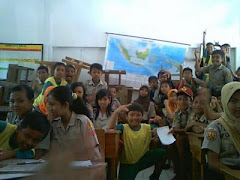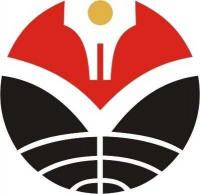The Southeast Asian Ministers of Education Organization (SEAMEO) was established on 30 November 1965 as a chartered international organisation whose purpose is to promote cooperation in education, science and culture in the Southeast Asian region.
| Brunei Darussalam | Cambodia | Indonesia | Lao PDR | |
| Malaysia | Myanmar | Philippines | Singapore | |
| Thailand | Timor-Leste | Socialist Republic of Vietnam |
Click on the Flag to view information of the country
Vision
A dynamic, self reliant, strategic policy-driven and internationally recognised regional organisation for strengthening regional understanding and cooperation in education, science and culture for a better quality of life
Mission
To enhance regional understanding and cooperation and unity of purpose among SEAMEO Member Countries and achieve a better quality of life through:
- the establishment of networks and partnerships
- the provision of an intellectual forum for policy makers and experts
- the promotion of sustainable human resource development
Goals
- To develop regional Centres of Excellence of international standard
- To provide relevant and excellent programs in training, research and development, information dissemination and policy analysis and evaluation in SEAMEO 's areas of specialisation
- To strengthen the organizational capability to initiate and manage change and development, to meet the challenges of globalisation
- To strengthen SEAMEO's management capability in order to meet Member Countries' needs effectively and efficiently
- To promote research and development in education, science and culture and improve the dissemination mechanisms
- To enhance collaboration among SEAMEO Member Countries and relevant organisations
- To ensure continued financial viability by exploring alternative sources of funding
Areas of Priority
- Agriculture and Natural Resources
- Culture and Tradition
- Information and Communications Technology
- Language
- Poverty Alleviation
- Preventive Health Education
- Quality and Equity in Education
Strengths
- The Organization is non-profit and not politically oriented
- SEAMEO has the largest grouping of country membership (11 Member Countries) in the region to deliver programmes in education
- Its flexibility and resilience has enabled it to meet the challenges posed by the fast changing political and socio-economic development in the region
- Its professional and technical programmes and activities that are often conducted on a regular scheduled basis are special and unique
- The Organization has built a strong infrastructure of extensive physical and equipment resources. Almost every Centre has its own campus, training, research and information dissemination, dormitory facilities to enable it to carry out its functions successfully and with quality
- Non-tangible resources of the Organization include its vast experiences, information, extensive network of contacts and linkages both nationally and internationally
- Its activities are focused on the universally appealing theme of human resources development including sustainable development. This helps make SEAMEO attractive to countries wishing to make contributions to sustainable development at the grassroots level in Southeast Asia
- The competence and experience of its personnel, complemented by the technical expertise provided by the SEAMEO Associate Member Countries and partner agencies, accounts for the quality and impact of its programmes and activities.
- The regional characteristic of the Centres professional staff also contributes to the richness in experience and competence of every Centre to handle projects that it undertakes. SEAMEO activities are not limited to Member Countries within Southeast Asia but are also open to participants, programmes and activities from outside the region. Interactions in these activities further enrich the experiences of the participants as well.
Funding
The Operational Budget for the SEAMEO Secretariat is underwritten by the Member Countries whereby the respective annual share is determined by the Asian Development Bank contribution index. The Operational Budget of the TROPMED Central Network likewise is equally shared by the SEAMEO Member Countries.
The Centres operational budget, capital and annually recurring costs of each Centre are underwritten by their host countries.
The Special Fund is a central fund administered by the SEAMEO Secretariat in order to support regular programmes and activities of SEAMEO Centres. Such programmes and activities include:
- Annual awards given by SEAMEO parters to outstanding personnel in various categories in the fields of education, science and culture in Southeast Asia
- Governing Board Meetings
- Personnel exchanges
- Project feasibility studies
- Research and development projects in education, science and culture
- Research fellowships and grants
- SEAMEO students exchange programme
- Seminars and special conferences
- Training and research scholarships
The SEAMEO Educational Development Fund (SEAMEO EDF) is the lifeblood of the Organization and has been established to serve as the central repository of gifts for SEAMEO to support the requirements of Special Funds and other Funds.
Other Funds has been established to support specific programmes and projects of various SEAMEO units which are not covered by the Operational and Special Funds.
| The SEAMEO has 19 specialist institutions that undertake training and research programs in various fields of education, science, and culture. Each Regional Centre has a Governing Board composed of senior education officials from each SEAMEO Member Country. The Governing Board reviews the Centres’ operations and budget and sets their policies and programmes.
| |||||||||||||||||||||||||||||||||||||||||||||||||||||||||||||||||||||||||||||||||||||||||||||||||||||||||||||||||||||||||||||||||||||
| |||||||||||||||||||||||||||||||||||||||||||||||||||||||||||||||||||||||||||||||||||||||||||||||||||||||||||||||||||||||||||||||||||||

SEAMOLEC
Southeast Asian Minister of Education Organization
Regional Open Learning Center
VISION
To be a center of expertise in open and distance learning
MISSION
To Serve one million clients by 2010
To assist SEAMEO Member Countries in identifying educational problems and finding alternative solutions for sustainable human resource development through the dissemination and effective use of open and distance learning.
Goal and Objectives
The goal of SEAMOLEC is to undertake relevant programs that are responsive to current national and regional requirements in the field of open and distance learning. In a more specific formulation, the objectives are to assist:
- SEAMEO member countries in promoting and fostering open and distance learning as another way to meet the demand for education and training. In this regard, open and distance learning can function to complement, supplement, or substitute conventional classroom instruction.
- Open and distance learning providers in SEAMEO Member Countries in:
- Designing, developing, evaluating, promoting, improving and expanding their services so as to accelerate student participation, lower drop out rate, and increase the number of qualified graduates;
- Establishing co-operative linkages for mutual help and formation of open and distance learning network; and
- Identifying, acquiring, and utilizing resources.
Since its establishment on 27 February 1997, SEAMOLEC has not only prioritized on the preparation of legal documents as a new SEAMEO center but also on conducting activities corresponding to its objectives and functions.
During the pre-establishment of SEAMOLEC, an Indonesian Task Force (ITF) representing related institutions was formed. The members of the Indonesian Task Force are representatives of the Center for Communication and Information Technology for Education (Pustekkom), the Indonesian Open Learning University (UT), the International Cooperation Bureau of the Ministry of Education and Culture (Biro KLN), and the Indonesian Association of Educational Technologists (IPTPI).
Then, the ITF was extended to be a SEAMOLEC Feasibility Study Team consisting of the representatives of SEAMEO Member Countries and SEAMEO Secretariat. This team is to prepare and conduct the feasibility study for the establishment of SEAMOLEC. The team had worked very hard through two SEAMEO workshops (conducted in Jakarta and Yogyakarta) and finally it could successfully accomplish its task by submitting the feasibility study report to SEAMEO High Officials Meeting (HOM) in Bangkok, Thailand and SEAMEO Council Conference in Manila, Philippines.
The rationale for the establishment of SEAMOLEC, among others was the conviction that conventional schools alone will not be able to meet the education for all. Furthermore, several SEAMEO member countries have implemented open and distance learning programs as alternative ways for increasing the opportunities and access for learners to participate in educational/training programs.
There are still some SEAMEO member countries that have not yet implemented any open and distance learning programs even though the need for education and training cannot be provided by existing conventional institutions. In order to promote the implementation of open and distance learning and foster the growth of existing open and distance learning programs to meet the demand of "education for all", the SEAMOLEC project proposal was developed.
Email: secretariat@seamolec.org














Tidak ada komentar:
Posting Komentar